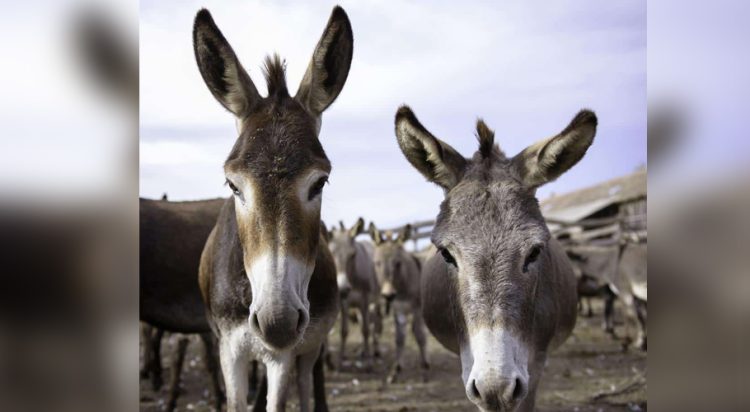Nearly six million donkeys are slaughtered each year to meet the growing demand for ejiao, a traditional Chinese health supplement made from donkey skin collagen, according to a report by UK-based animal welfare group The Donkey Sanctuary.
The global trade in donkey hides is being driven by China’s booming $6.8 billion ejiao industry, as reported by research firm Qianzhan. With China’s domestic donkey population dropping sharply—from 11 million in 1992 to just 1.5 million in 2023—the country has increasingly turned to African nations to meet the shortfall.
In response to dwindling donkey numbers and the social fallout, the African Union imposed a 15-year ban on donkey slaughter last year. Yet, The Donkey Sanctuary warns that illegal trade continues to thrive across the continent.
“The ejiao industry fuels an extensive and often unlawful global trade in donkey skins,” the charity said, adding that an estimated 5.9 million donkeys were killed worldwide in the past year alone. This figure is expected to rise, with industry forecasts suggesting a need for at least 6.8 million donkey hides by 2027.
The rising value of donkeys has also led to a surge in organized criminal activity, the charity reports. Gangs, operating through vast networks of agents, often coerce or deceive impoverished owners into parting with their animals. In many cases, donkeys are stolen at night and slaughtered in unhygienic, unregulated facilities, often dying from neglect or mistreatment before even reaching the abattoirs.
The human toll is significant, particularly in rural African communities where women and children rely on donkeys for daily activities such as transporting goods, fetching water, and farming.
Beyond economic hardship, the trade also poses serious health and environmental risks. The improper disposal of carcasses and the transportation of untreated skins could facilitate the spread of infectious diseases and disrupt local ecosystems, the report warns.
The Donkey Sanctuary is urging global action to clamp down on the illegal trade, promote animal welfare, and protect the livelihoods of millions who depend on these animals for survival.




































